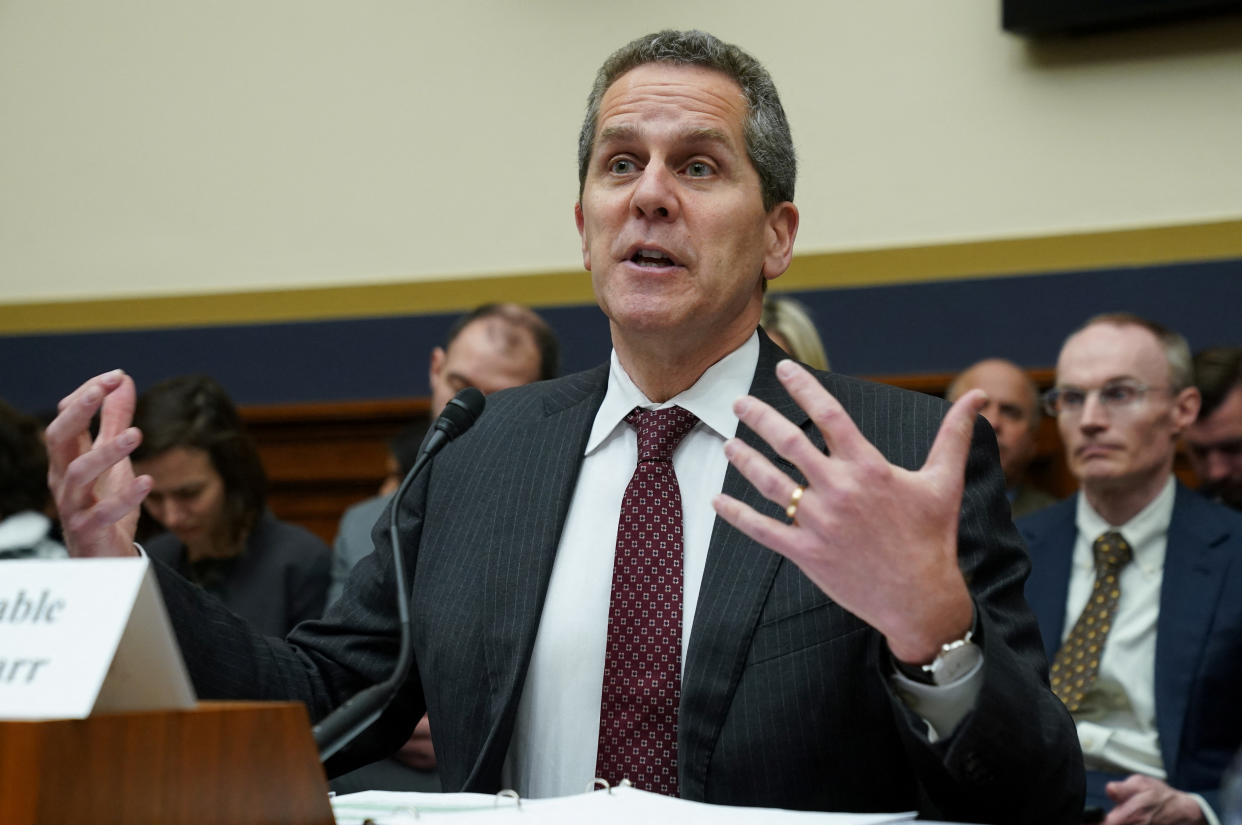Fed watchdog says SVB overseers didn’t keep pace with bank's growth
The Federal Reserve’s Office of Inspector General said Thursday that the Federal Reserve Board and the Federal Reserve Bank of San Francisco failed to catch Silicon Valley Bank’s problems before its failure because supervision over the bank didn’t grow as quickly as the lender’s assets.
The 53-page review from the Fed’s watchdog cited several reasons for SVB’s failure, which the Federal Reserve included in its own review, such as mismanagement of interest rate risk, unchecked growth, and higher concentrations in its depositor base.
The report also highlighted that despite recognizing these issues, supervisors failed to catch the bank’s problems in time because its examiners lacked the resources and expertise to oversee it as the lender became a larger and more complex bank.
“The Board and the Federal Reserve Bank of San Francisco were responsible for ensuring that SVB had safe and sound business practices. However, their supervisory approach did not evolve with SVB's growth and increased complexity,” the Fed’s OIG said in a statement.

The Federal Reserve bank supervision levels vary on a bank’s asset size and complexity. Between 2017 and 2022 Silicon Valley Bank quadrupled in size, and supervisors began transitioning it from the “regional banking organization” category to the “large and foreign banking organization.”
However, the transition was delayed for several reasons, leaving the bank’s oversight insufficient according to the OIG.
The OIG cited a 2019 tailoring rule that meant banks above $100 billion were no longer subject to so-called enhanced prudential standards (EPS). It also said management allocated an insufficient amount of examiner resources and hours to the bank. Finally, those examiners assigned to SVB “did not have sufficient expertise to supervise a large complex bank. Onsite supervision exams also paused at the beginning of the pandemic.
The Fed’s watchdog recommended assessing the supervision framework for regional banks to determine what adjustments need to be made based on a bank’s size, complexity, and business model, something the Fed is already undertaking. Fed Vice Chair of Supervision Michael Barr put forth recommendations this summer that would require banks to raise capital by 16% and would widen the scope of new rules to institutions with as few as $100 billion in assets, essentially reversing a 2018 law that excluded banks with $100 billion to $250 billion from higher scrutiny. The inspector general also recommended tailoring rules to focus on more timely risks and cross-training examiners.
The OIG also found that the lack of effective oversight by the bank's board of directors "hindered SVB’s ability to self-identify internal control weaknesses and manage risks proactively.” The OIG pointed out that the Federal Reserve of San Francisco did not remove SVB CEO Greg Becker from its board of directors, despite the bank falling in its regulatory ratings. It cited supervisory concerns that the move would reveal "confidential supervisory information and potentially signaling to the market the bank’s declining condition."
The bank regulator watchdog's own accountability was scrutinized in the weeks following SVB's collapse. Sens. Elizabeth Warren (D-Mass.) and Rick Scott (R-Fla.) introduced bipartisan legislation in March to require a presidentially appointed and Senate-confirmed inspector general to the Fed to create more independent oversight.
The senators also held a hearing in May with Fed Inspector General Mark Bialek on conflicts of interest that they say may have prevented him from conducting effective oversight in the wake of SVB and other regional bank failures. Warren pointed out that the Fed board has the power to fire him, even though he oversees their actions.
Click here for the latest stock market news and in-depth analysis, including events that move stocks
Read the latest financial and business news from Yahoo Finance
